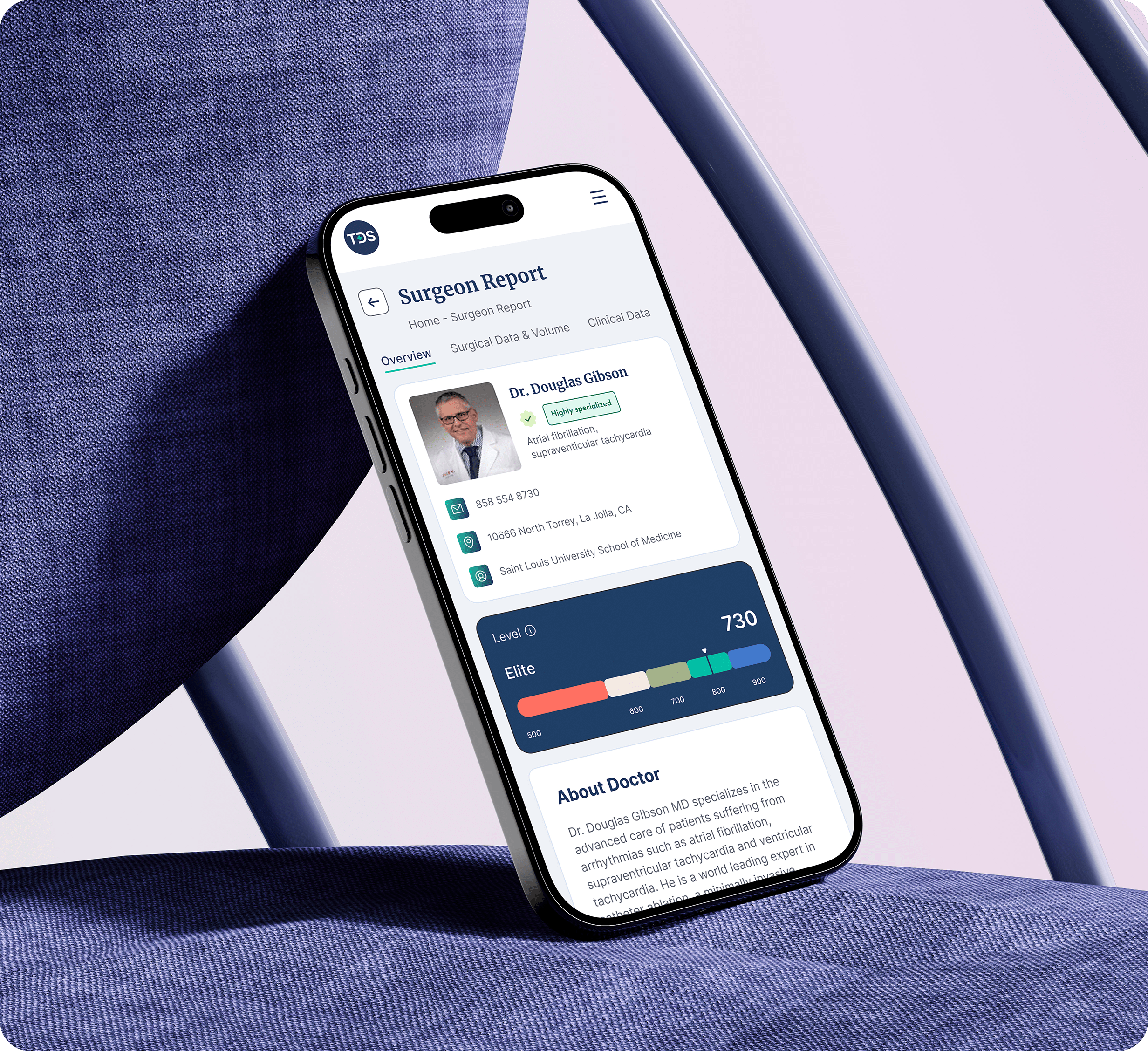
Ai Cases For
Surgery Management

Table Of Contents
Empowering Patient Choice with TrustedSurgeon.ai and Questa Solutions
Executive Summary
TrustedSurgeon.ai addresses a critical need for transparency and data-driven decision-making in healthcare by providing patients with unbiased, comprehensive reports on surgeon and hospital performance. This case study outlines the challenges patients face in selecting surgical providers, the innovative solution developed by TrustedSurgeon.ai, and the pivotal role of Questa Solutions in building the underlying technological infrastructure. The collaboration has led to significant improvements in surgeon discovery and surgery data management, empowering patients with confidence and potentially reducing complication rates.
Introduction: The Imperative for Transparency in Surgical Care
Finding the right surgical care is hard for US surgery bound patients who need to access at least 10 different federal healthcare sides and browse through arcane medical terminology to understand the performance data of their preferred surgeons. Traditional methods often rely on physician referrals, word-of-mouth, or limited online reviews, which may lack the objective, data-driven insights necessary for informed decision-making. The absence of transparent performance metrics for surgeons and hospitals can lead to suboptimal choices, increased patient anxiety, and potentially poorer health outcomes. TrustedSurgeon.ai emerged to bridge this gap, offering a platform that demystifies surgical data and empowers patients to choose their providers with confidence.


The Challenge: A Lack of Data-Driven Decision Support for Patients
Patients seeking surgical procedures are often confronted with a significant information asymmetry. Key challenges include:
Limited Access to Performance Data: Comprehensive data on surgeon-specific outcomes, complication rates, and patient satisfaction is rarely accessible to the public. Hence patients rely on hearsay instead of objective data to assess their care quality.
Bias in Traditional Referrals: Referrals from primary care physicians or specialists, while valuable, may not always be based on the most current or comprehensive performance metrics. Similarly, hospital marketing can obscure true performance.
Complexity of Healthcare Data: Surgical data is vast, complex, and often siloed across various healthcare systems, making aggregation and analysis a significant technical hurdle.
Scaling and Integration with Partners
Extensible Architecture: Recommendation endpoints and monitoring APIs were built for future integration with partner dashboards and ML-Ops pipelines.
Partner Enablement: Technical integration documents and 3–5 video tutorials were produced for partner DevOps teams to enable self-service deployment.
Conclusion
Patients seeking surgical procedures are often confronted with a significant information asymmetry. Key challenges include:
• Limited Access to Performance Data: Comprehensive data on surgeon-specific outcomes, complication rates, and patient satisfaction is rarely accessible to the public. Hence patients rely on hearsay instead of objective data to assess their care quality.
• Bias in Traditional Referrals: Referrals from primary care physicians or specialists, while valuable, may not always be based on the most current or comprehensive performance metrics. Similarly, hospital marketing can obscure true performance.
• Complexity of Healthcare Data: Surgical data is vast, complex, and often siloed across various healthcare systems, making aggregation and analysis a significant technical hurdle.
• Patient Anxiety and Suboptimal Choices: Without clear, unbiased information, patients may experience heightened anxiety and make decisions based on incomplete data, potentially leading to higher complication rates or dissatisfaction. TrustedSurgeon.ai highlights that patients using their reports feel 92% more confident in their choices, underscoring the previous lack of confidence [1].
TrustedSurgeon.ai developed an innovative platform designed to provide personalized, data-driven reports to patients. The platform's core functionality involves:
• Data Aggregation and Analysis: Collecting and analysing surgical data from verified hospital performance records, surgeon case volumes, and procedure success statistics from trusted, third-party sources [1].
• Personalized Surgeon Ranking: Generating detailed reports that rank qualified surgeons based on outcome data, experience level, and patient reviews, ensuring unbiased insights without ads or hidden sponsorships [1].
• Transparency and Confidence: Offering clear comparisons of success rates, complications, and patient satisfaction to empower patients to choose with confidence [1].
To build this robust and secure platform, TrustedSurgeon.ai partnered up with Questa. As an AI Platform Builder, Questa brought specialized skills in planning, designing, implementing, and supporting IT initiatives for healthcare organizations [2]. Our expertise was crucial in addressing the complex technical requirements of handling sensitive patient data and integrating diverse data sources.
Enhanced Surgery Data Management
Centralized Data Repository and Data Lake: Questa Solutions helped establish a secure and efficient system for collecting, storing, and processing diverse surgical data from various verified third-party sources.
Automation and Integration of Data Ingestion : REST API integrations with high accuracy and reliability parameters for ingestion of source data presented in the patient reports.
Scalable Infrastructure: The underlying IT architecture built by Questa Solutions provides the scalability necessary to expand coverage beyond California and incorporate more procedures and data sources in the future.
Outcomes and Improvements
The platform had significant improvements in the following:
Improved Surgeon Discovery
Evidence based Data: Patients can now access objective evidence about surgeons based on quantifiable outcome data including procedure count, 30-day complication rates, insurance coverage, publications, malpractice lawsuits if any, moving beyond subjective referrals.
Enhanced Confidence: With 92% of patients feeling more confident after using the reports, the platform has successfully addressed patient anxiety and empowered them to make informed decisions.
Access to High-Volume Surgeons: By highlighting metrics like the 300+ procedures benchmark, the platform helps patients identify experienced surgeons, potentially leading to better outcomes and 42% lower complication rates.



